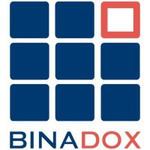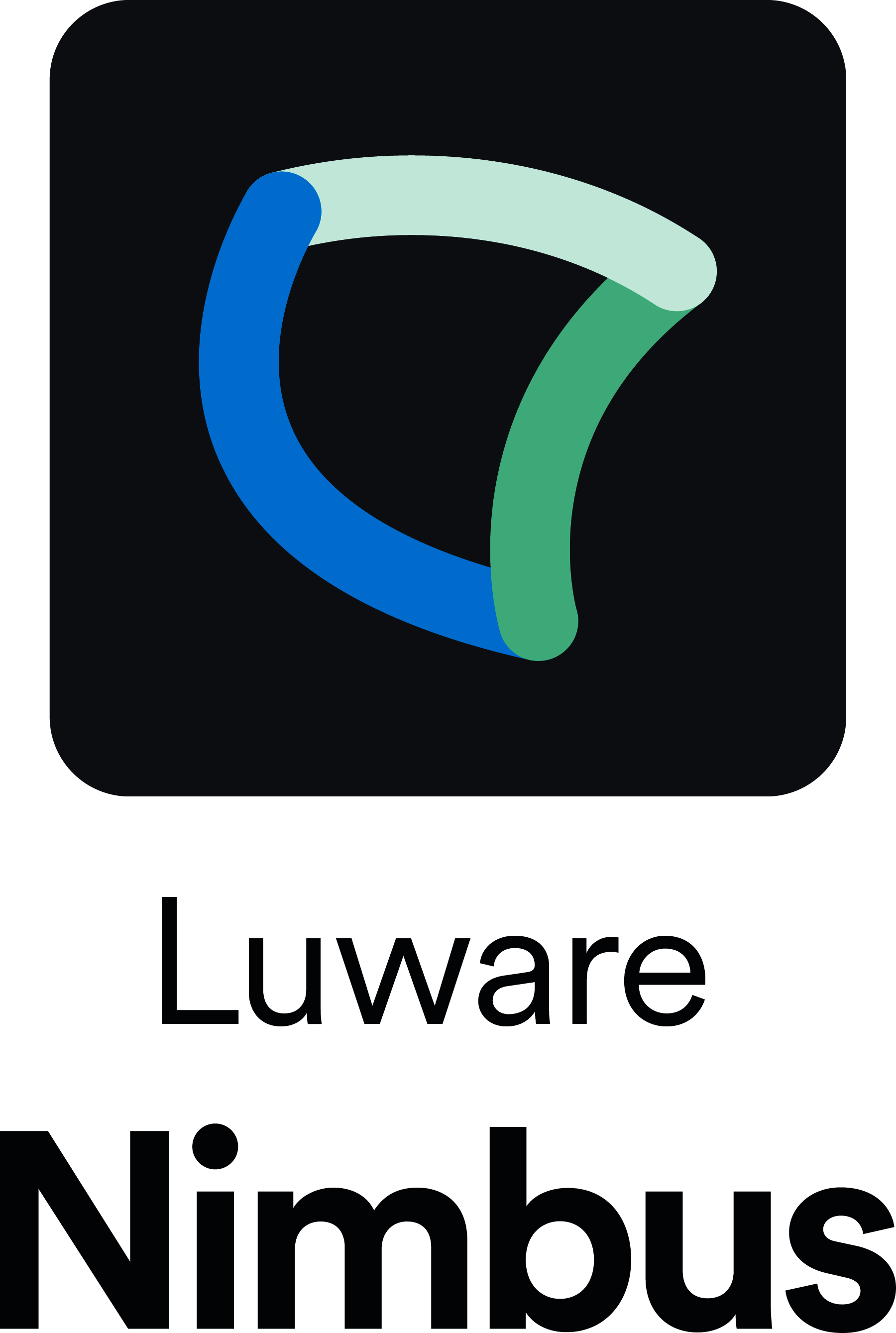What Is Cloud Cost Management Software?
Cloud Cost Management Software is a sophisticated solution that enables businesses to easily manage and optimize their cloud expenses. It is specifically developed to help enterprises monitor, analyze, and reduce their cloud costs. With the advent of cloud-based solutions, organizations are increasingly turning to software solutions to effectively analyze and manage cloud usage while being cost-effective.
This software gives users with a full view of their whole cloud infrastructure, allowing them to discover cost drivers, manage spending, and make cost-effective decisions. It also allows firms to define budget thresholds, which inform them when they are about to exceed their expenditure limits. Furthermore, certain advanced features enable automatic scaling, guaranteeing that firms do not pay for resources that are not being used.
Cloud Cost Management Software also provides thorough cost breakdowns for each service and resource, allowing firms to find areas for additional cost optimization. It can also aggregate prices across several cloud providers, making it an excellent choice for companies with a multi-cloud strategy. Another advantage of this program is its capacity to perform accurate forecasting and cost planning.
By examining historical usage trends, firms may forecast future cloud expenditures and incorporate them into their financial plans. Furthermore, many cloud cost management solutions have cost allocation tools, which allow firms to transfer costs to different departments, projects, or customers, providing greater insight into cloud expenses.
What Are The Recent Trends In Cloud Cost Management Software?
In recent years, there has been a substantial trend towards firms using cloud technology to run their operations. With this, efficient and effective cloud cost management has become a primary responsibility. To solve this, cloud cost management software has evolved to meet the market's evolving demands.
Let's look at the most recent trends in this category.
1. Increased Emphasis On Optimization And Cost Reduction: With the surge of cloud adoption, organizations are seeking for strategies to maximize their cloud utilization while lowering expenses. Cloud cost monitoring software enables businesses to monitor their cloud spend in real time and uncover cost-cutting opportunities. This trend is projected to continue as organizations seek to maximize the return on investment (ROI) from their cloud expenditures.
2. Integration With Different Cloud Services And Tools: To create a more smooth experience for consumers, cloud cost management software now integrates with other popular cloud services and applications. This gives firms a consolidated view of their cloud costs and helps them manage them more efficiently. Furthermore, these integrations support automatic data transfer, which eliminates the need for manual data entry and reduces the likelihood of error.
3. Focus On Predictive Analytics: One of the most recent trends in cloud cost management software is the use of predictive analytics. These solutions use machine learning and AI to analyze historical consumption trends and generate cost-saving recommendations for the future. This allows organizations to proactively control their cloud spending and avoid unexpected bill spikes.
4. Multi-Cloud Management: As businesses increasingly employ several cloud providers for various purposes, the necessity to manage expenses across these platforms has evolved. Cloud cost management software now includes multi-cloud management features, allowing businesses to evaluate costs and usage across several cloud providers and make informed decisions about their cloud strategy.
5. Improved Security Features: When it comes to managing cloud costs, organizations prioritize data security. As a result, cloud cost management software now includes additional security capabilities to protect sensitive financial data and ensure secure access to the platform. These features include encryption, access controls, and data backups, providing organizations with peace of mind as they manage their cloud spending.
Benefits Of Using Cloud Cost Management Software
Cloud cost management software provides numerous benefits to enterprises of all sizes. From cost savings to increased efficiency, here are the top benefits of adopting this type of software:
1. Cost Savings: One of the most significant benefits of employing cloud cost management software is expense reductions. Businesses can use this software to accurately measure and monitor their cloud spending, allowing them to uncover cost-cutting opportunities or optimize their utilization. This not only saves firms money in the long run, but it also ensures that they only pay for resources that they require.
2. Improved Efficiency: Cost management software improves productivity by giving firms a comprehensive perspective of their cloud spending. Companies can simply discover and reallocate any unused or underutilized resources to more important areas. This not only saves money, but also guarantees that resources are used efficiently.
3. Real-Time Monitoring: Cloud cost management software enables firms to track their spending in real time. This means that any changes or modifications to their cloud infrastructure will be promptly reflected in the cost management application. With this level of information, businesses can swiftly identify and handle any expenditure surges or irregularities.
4. Automated Cost Optimization: Some cloud cost management software provides automated cost optimization functions. This means that the program will automatically suggest improvements or tweaks to assist firms save money. For example, it may recommend cutting off underutilized resources or switching to a different price plan for specific services.
5. Multi-Cloud Management: With the growing use of many cloud providers, it can be difficult to analyze and manage costs across platforms. However, cloud cost management software provides a consolidated solution that enables businesses to monitor and control spending across all cloud platforms. This saves time while also ensuring that no resources are neglected.
6. Improved Budget Planning: Cloud cost management software allows organizations to see a full breakdown of their cloud spending, making it easier to plan and budget for future expenses. Companies can use this data to estimate future costs and make more educated decisions regarding their cloud infrastructure.
Important Factors To Consider While Purchasing Cloud Cost Management Software?
When it comes to purchasing cloud cost management software, there are several important factors to consider in order to make an informed decision. Here are the top four factors to keep in mind when evaluating potential options:
1. Cost-Effectiveness: The primary purpose of cloud cost management software is to help you optimize and reduce your cloud spending. Therefore, it's crucial to choose a software that is cost-effective and offers a good return on investment. Look for software that offers clear pricing models, transparent billing, and the ability to estimate and track your cost savings.
2. Flexibility And Customization: Every business has unique cloud usage patterns and needs. This is why it's important to choose software that offers flexibility and allows for customization according to your specific requirements. This could include features such as customizable dashboards, reports, and automated cost allocation based on your organizational structure.
3. Multi-Cloud Support: Whether you use one cloud provider or multiple, it's essential to choose a cost management tool that supports all your cloud environments. This will allow you to have a comprehensive view of your cloud spending and make informed decisions to optimize costs across different providers.
4. Scalability: As your business grows, your cloud usage and costs will also increase. Make sure the software you choose can scale with your business and accommodate changing needs. This could include features like user permissions and role-based access control, which are important for larger organizations with multiple teams and stakeholders.
Important Factors To Consider While Purchasing Cloud Cost Management Software?
When contemplating investing in Cloud Cost Management Software, consumers should prioritize a few important aspects to guarantee they get the best value for their money. These features include the following:
1. Cost Optimization: The major goal of Cloud Cost Management Software is to optimize cloud computing expenses. Look for a solution that includes tools like cost forecasting, budget management, and cost allocation to help you make informed decisions and save money on cloud services.
2. Cloud Provider Compatibility: Ensure that the product is compatible with your chosen cloud provider(s). This ensures precise data gathering and analysis, as well as smooth connection with your current cloud infrastructure.
3. Resource Management: Effective cost management entails understanding and controlling your cloud resources. Look for software that gives you visibility into resource consumption and optimization recommendations, such as resizing or shutting off underutilized resources.
4. Automation: Manual cost management is time-consuming and subject to human error. To streamline operations and save time, look for software that allows for automated cost allocation and scheduling of resource resizing.
5. Cost Comparison: With so many cloud service providers offering different price systems, it's critical to be able to compare costs across providers and services. Look for software that includes this capability to assist you make more cost-effective judgments.
6. Cost Monitoring And Alerts: Real-time monitoring of cloud charges is critical for staying on top of expenses. Look for software that notifies you to cost spikes or budget overruns, allowing you to move quickly and minimize unforeseen spending.
7. Reporting And Analytics: Accurate reporting and analytics are essential for understanding cloud expenses and making data-driven decisions. Look for software that provides customisable reports and dashboards for tracking expenditures and identifying patterns over time.
8. Scalability: As your organization expands, your cloud usage and prices are sure to rise. Look for a solution that can grow with your company, handling larger datasets and more complex scenarios. By taking these crucial qualities into account, buyers may choose Cloud Cost Management Software that fulfills their individual requirements, improves cost efficiency, and, ultimately, maximizes their return on investment.
Why Do Businesses Need Cloud Cost Management Software?
Businesses are increasingly embracing the cloud for its several advantages, including cost savings, scalability, and flexibility. However, along with these advantages comes the issue of managing and optimizing cloud expenditures. This is where cloud-based cost management software comes in. Cloud Cost Management Software equips businesses with the tools and insights they need to efficiently monitor, analyze, and control cloud spending.
It assists businesses in understanding their cloud usage and costs, identifying areas for optimization, and ultimately reducing their overall spending on cloud services. One of the primary reasons firms want Cloud Cost Management Software is to prevent unexpected and excessive cloud expenditures. Without effective visibility and management, cloud expenditures can quickly escalate, resulting in budget overruns and financial hardship.
Businesses can use Cloud Cost Management Software to proactively manage and estimate their cloud costs, allowing them to make informed decisions and avoid overpaying. Furthermore, with the growing complexity of cloud systems, it can be difficult to keep track of all the many cloud services and their associated expenses. Cloud Cost Management Software makes this process easier by giving a single platform for managing and monitoring all cloud charges.
It also includes capabilities like cost allocation and chargeback, which allow firms to precisely distribute expenses to various projects, departments, and teams. Cloud Cost Management Software not only manages costs, but also helps firms optimize their cloud spending. This includes finding wasted or underutilized resources, right-sizing instances, and taking advantage of discounts and reserved instances.
Businesses may save money and get the most out of their cloud investment by managing their costs. Another advantage of Cloud Cost Management Software is the ability to create budgets and receive notifications. Businesses may set expenditure limits and receive reminders when they are approaching their budget, allowing them to keep track of their cloud costs and avoid overspending.
How Much Time Is Required To Implement Cloud Cost Management Software?
The deployment time for cloud cost management software varies depending on a number of factors, including the complexity of your organization's IT infrastructure, the solution selected, and your team's level of software knowledge. On average, the implementation procedure can last from a few weeks to a few months. The first step in installing cloud cost management software is to evaluate your organization's present IT infrastructure and identify your unique requirements and objectives.
This will assist you in selecting the appropriate solution and developing an implementation strategy. The next step is to integrate the program with your existing systems and platforms. This may include creating and establishing API connections, building dashboards, and importing data from cloud service providers. After the software has been integrated, your team will need to be taught on how to utilize it properly.
This often includes onboarding seminars, online tutorials, and software vendor documentation. The length of the training process is determined by your team's prior knowledge with the software and ability to swiftly absorb new concepts. Some suppliers offer continuing support and training to ensure that your team is completely prepared to use the product.
It is important to note that, while the implementation process may take some time, the benefits of cloud cost management software surpass the initial expenditure. It can save your company time and money in the long term by optimizing cloud charges and increasing overall operational effectiveness. Furthermore, using the program will provide you with useful insights into your organization's cloud usage and expenditure habits, allowing you to make data-driven decisions and optimize your IT budget.
What Is The Level Of Customization Available In Cloud Cost Management Software?
Cloud cost management software provides a wide range of features and capabilities to assist enterprises in efficiently managing their cloud expenditure. One of the most important elements to consider when comparing different solutions is the level of personalization available. It is critical to remember that each organization has its own set of needs and budget limits. As a result, the ability to tailor software to fit specific requirements is critical. Keeping that in mind, let's look at the level of flexibility offered in cloud cost management software.
1. Configurable Dashboards: A reliable cloud cost management software should include configurable dashboards that enable users to properly monitor costs and resources. These dashboards can be customized to display the most important information for the organization, such as cost trends, utilization metrics, and cost breakdowns by service or department.
2. Cost Allocation Flexibility: Organizations frequently use a variety of cost allocation mechanisms for cloud resources. Some may want to allocate expenditures according to projects, departments, or specific resources. A high level of customisation is required to meet these diverse requirements, allowing users to specify and adapt cost allocation criteria.
3. Customizable Advice: Cloud cost management software frequently provides cost optimization advice based on usage trends. However, some suggestions may not be appropriate for all organizations. The capacity to adapt or fine-tune these recommendations based on specific requirements can result in significant cost savings.
4. Adjustable Budgets: Another important component of customization is the option to specify budget thresholds and modify alerts for budget overruns. This tool can help firms plan and control their cloud costs more effectively.
5. Integration With Other Systems: Many firms manage their IT infrastructure using a variety of tools and platforms, including cloud provider consoles, expenditure management systems, and project management tools. A highly customized cloud cost management software should interact easily with various platforms, providing a comprehensive view of all cloud charges.
Which Industries Can Benefit The Most From Cloud Cost Management Software?
Cloud cost management software is becoming increasingly important for businesses across all industries as the demand for cloud computing grows. While these tools can benefit any organization, particular industries stand to benefit the most from deploying cloud cost management software.
we'll look at which sectors can gain the most from employing cloud cost management software.
1. IT And Technology: IT and technology organizations are at the forefront of cloud computing adoption, making them ideal candidates for cloud cost management software. These organizations frequently operate in complicated and unpredictable cloud settings, making it difficult to analyze costs and optimize spending. With cloud cost management software, these businesses can receive real-time visibility into their cloud expenses, identify areas of overspending, and apply cost-cutting strategies.
2. FinTech: In the fast expanding FinTech industry, cost management and competitive advantage are critical. FinTech organizations can use cloud cost management software to track and optimize their cloud expenses, ensuring that they are not overspending on needless resources. With the flexibility to distribute expenditures to multiple teams and projects, FinTech organizations can accurately analyze their spending and make educated resource decisions.
3. Healthcare: Healthcare firms are increasingly turning to cloud computing to store and manage patient data while also streamlining operations. With tight compliance and regulatory constraints, these enterprises must accurately measure and manage their cloud spending. Cloud cost management software can assist healthcare firms in lowering their cloud expenditures while maintaining data security and compliance.
4. E-commerce: E-commerce companies operate in a highly competitive market where every cent counts. Cloud cost management software can assist these firms in tracking and analyzing their cloud spending, identifying cost-saving opportunities, and optimizing their cloud resources. With the capacity to estimate future cloud spending, e-commerce enterprises can properly plan their budgets and remain competitive.
5. Startups: Because startups frequently have limited resources and low budgets, effective cost management is critical. Cloud cost management software may help entrepreneurs track their cloud charges in real time, discover areas for overpaying, and optimize their cloud resources. Startups may keep their cloud spending under control by setting budget alerts and creating cost-saving recommendations.
Conclusion
After doing a thorough review of various cloud cost management software alternatives, it is evident that managing cloud expenses has become an essential component for enterprises of all sizes. With the growing growth of cloud usage, it is critical to implement a strong cost management plan to ensure optimal resource utilization, cost efficiency, and overall business success.
Our research shows that selecting the correct cost management software is critical for firms trying to optimize cloud costs and maximize ROI. As with any software acquisition, it is critical to analyze your specific business requirements, budget, and desired goals. Before making a decision, consider the features, pricing model, and support options provided by each package.
Look for tools like automated cost optimization, budget forecasting, cost tracking, and configurable reporting to guarantee a holistic approach to cloud cost management. Consider how well it integrates with your existing cloud infrastructure and other technologies in your tech stack. This ensures smooth data flow and improves the overall effectiveness of the cost management software.
Finally, investing in dependable and effective cloud cost management software is a wise decision for any firm looking to save costs and streamline cloud operations. By carefully examining the many possibilities and picking a solution that meets your specific business objectives, you can efficiently control cloud costs and propel your company forward.






















